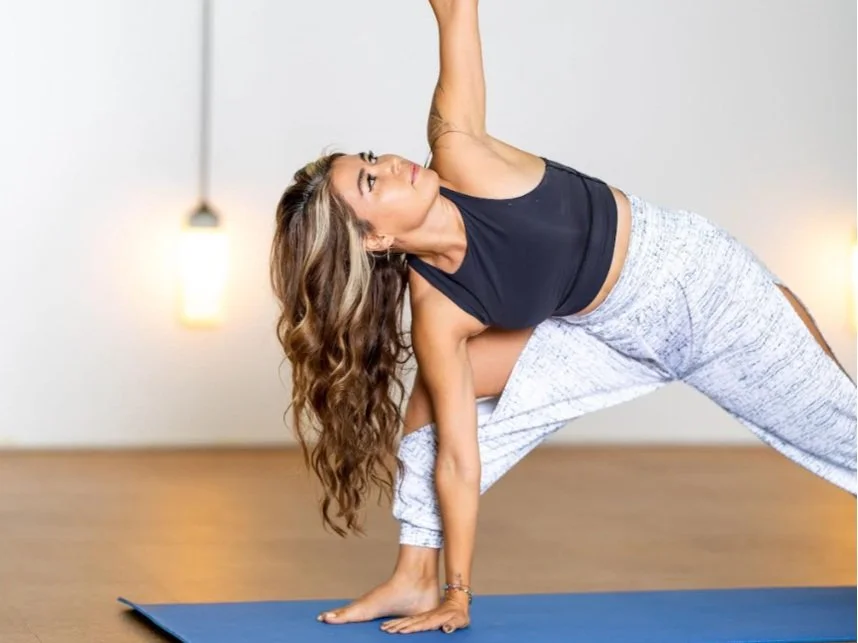It’s All About Awareness
My Chat with Dee Xecu.
I am very excited to share with you all tidbits from a recent conversation with Dee Xecu. Dee is a trauma-informed yoga teacher, reiki practitioner, meditation guide, sound healer, and overall incredible human being. Dee is also co-facilitator for Coorself’s workshop Unravel: The Embodied Release of Intergenerational Trauma. In our conversation, I ask Dee about her own journey, trauma-informed yoga, and what keeps her well. Let’s dive in!
Take us on your journey. What led you to trauma-informed yoga?
Trauma-informed yoga spoke to me directly. It spoke to my upbringing, things that I have dealt with, or hadn’t dealt with before. When I first rolled out my mat, I didn’t know what I was doing or how to do the poses, but I started to learn what it was like to understand what I was feeling in the present moment. In the present moment, I felt a lot of trauma stored in my body. Something just wasn’t flowing correctly and I felt like I was back in the trauma space. It was scary and uncomfortable but it allowed me to explore the trauma in a safe space. I became curious about how yoga can help us understand what trauma really is without even talking about it, but just sitting with it. For me, the whole purpose of yoga became learning how to nurture yourself.
After that, I began going to therapy to help me understand myself even deeper. I learned about boundaries, my patterns, and programming. The integration of yoga training, reading books, therapy, and a supportive group of people made everything easier. Even though it was hard, all of these things came together for me in a beautiful way. I learned that I can hold space for myself and hold space for somebody else that is feeling similarly.
Did exploring your trauma get easier?
It did get easier. In the beginning it felt like extreme discomfort but once you begin to develop compassion for yourself, everything gets easier. Getting over the cultural taboo of talking about our experiences helped me too. We talk about our physical health, what foods to eat and working out, but never about our mental health. We, as humans, need to hold space for each other and let each other know that it is okay. That is essential.
What would you say to someone who is working on adapting their yoga practice to accommodate trauma?
Remember that the goal is not always to feel better, the goal is to sit in the discomfort and let what comes up for you be okay. This is a shift. Yoga becomes something that you are not trying to get “better” at but a practice of being with yourself and cultivating awareness. Release your expectations. If you begin shifting your awareness outside of your body, by comparing your practice to someone else’s or pushing yourself past what your body is okay with, you could be reinforcing your trauma. Keep your focus on your practice and on your breath. Allow yourself the space and permission to breathe through discomfort or to say no to something that feels like it’s too much. You can use the duration of the practice to lie down on your mat. The choice is yours.
It is equally as important to find a teacher that resonates with you. Someone that offers direction in the form of suggestions. A person who invites you to connect with your body and to release judgment. Along the same lines, I wouldn’t recommend power yoga to those who have experienced trauma. Opt for more of a yin practice or a slow, gentle, restorative yoga practice.
Is consistency important?
Yes and yoga is a slow build. Start with a weekly practice, notice what comes up for you. How are each of the weeks different? Slowly begin building more practices into your week.
Are there any specific texts or teachings that have had a profound impact on you?
I am inspired by teachers that have come before us. The ones that have done the work and experienced enlightenment, or transcendental experiences, whatever you want to call it. I am drawn to simplicity and to people who tell you like it is. Thich Naht Hanh is one of my favorite teachers. He is gentle but there is no sugar coating, it’s all right there. I just finished his book, No Mud, No Lotus. It talks about how we do not grow without pain or suffering. All feelings coexist.
What keeps you well?
I practice meditation every single day. Integrating mindful meditation every single day helps me have clarity. Clarity is not having clutter in my head. Some days are easier than others, but I am still going to do the practice.
We hope you enjoyed our chat! To continue to follow along on Dee’s journey, you can find her on instagram @artsy_dee_ and @dhyanayoga_.
All my love,
Caroline

